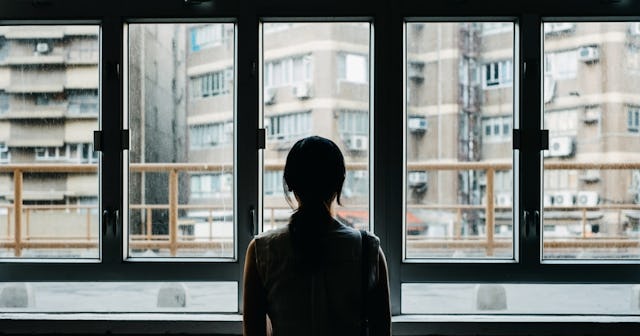8 Ways To Overcome Loneliness While Taking Things At Your Own Pace

Everyone gets lonely at times. Sometimes moments of solitude are necessary while other times we might feel consumed with feelings of distress and unworthiness. We might feel like there’s something wrong with us or might struggle to see the light at the end of the tunnel. Overcoming loneliness can be tough at times but it is possible with some effort and a willingness to do the work so that you can feel more connected to yourself and the world around you. Below are some tips on how to cope and what to do when you’re lonely.
Acknowledge and accept the feeling
If you’re feeling lonely, it’s okay to admit that to yourself. Don’t blame or judge yourself for feeling this way. There are a number of reasons why you’re feeling lonely and none of them are your fault. Accept where you’re at right now, and know that this feeling won’t last forever.
Seek solace from what gives you pleasure
What gives you peace? What soothes you? Is it a pet? A favorite movie? Being in nature? Do the thing that makes you feel safe and content.
Reach out for support
If you have a network of friends or family members, or anyone in your community with whom you feel safe, don’t be afraid to reach out and ask for support. While you don’t have to share your lonely state (although there’s nothing wrong with that!) you can reach out to make contact and suggest meeting up, or just have a lengthy chat. You’ll be surprised at how many people are waiting for you to reach out to them.
Disconnect from social media
No place makes us feel lonelier or worse about ourselves that social media. If you’re someone who often finds that you’re comparing yourself to others or experiencing major cases of FOMO, then your best remedy is to lay off the social media feeds. Restrict your usage from daily or monthly, or not at all. You might even log out or delete them entirely from your phone. Return only when you feel more confident and sure about yourself.
Find a new hobby or interest
When we’re lonely, it’s best if we can place that energy into something that’s productive and which will give us pleasure, and perhaps connection with other people. Follow your curiosity. What hobbies or activities are you drawn to? Is there an interest of yours that has fallen to the wayside in recent years? Revisiting old and new passions can be the antidote for loneliness as we can start to put the focus off of ourselves and towards something else.
Related: 100+ Quotes About Loneliness That Feel Like A Big Hug
Help someone in need
In a similar vein, helping out someone in need, like an elderly neighbor or volunteering at a local soup kitchen or animal shelter, can also make us feel less self-focused. By helping out those less fortunate, we’re able to find the good in others and in ourselves, which is bound to boost your mood.
Make a gratitude journal
In times of great sadness and despair, it’s tough to see what we have. We’re more likely to see what we don’t have. However keeping a gratitude journal, in which you regularly write down five things you’re grateful for each day, can nudge your perspective in a more positive direction and help you see that you have a lot of blessings in your life that you might not even realize. Anything from good health to a roof over your head to a hot cup of coffee in the morning are all beautiful things to be grateful for.
Learn to love your own company
So many of us have been conditioned to believe that if we are not surrounded by people all the time or have someone to join us in an activity, then there must be something wrong with us. But there is an art of being alone and enjoying one’s company that’s sadly lost on society. Being able to love yourself and your own company is one of the greatest gifts and pleasures you can give to yourself. Experiment with ways on how you can better love your own company, whether it’s through dining solo or going to the movies by yourself. You might be surprised at how much better you feel.
Related: 100 Self Care Ideas For Inspo When You’re Ready To Put Yourself First
This article was originally published on